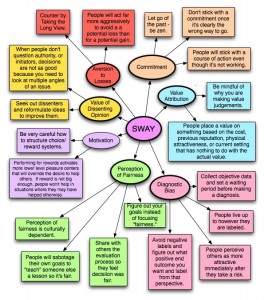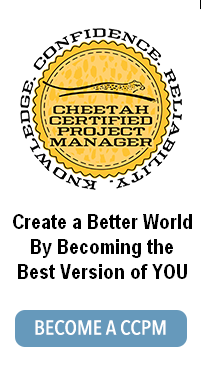High Performing Business – Negotiations – Exit Strategy
Monday, April 18th, 2016Michelle LaBrosse, CCPM, PMP, PMI-ACP, RYT
Having an idea (or even several ideas) on how to exit a situation (any situation) is something that requires careful deliberation. Yes I hear the commitmentohpiles or those who believe thought creates reality saying , “but doesn’t having an exit strategy presuppose you’ll need one and create the situations for it to occur?” Having an exit strategy helps you continue to move forward with kindness and compassion when the inevitable forces of change blow through life.
From my knothole on the planet, the number one reason I see people fail to achieve their full potential is because they stay with what is too good to leave and too bad to stay far longer than is required. I’m not just talking about significant relationships – I’m talking careers, locations where you live, business relationships that were once rock solid but now exist by the barest of threads. Lets say you’re working on a project and over time, the person or people who wanted you to do the project seem to lose interest – how can you move on to your next big thing in the way that is in the best interests of all? Or you have a supplier that provides a critical service for your business – but over the past six months they have been late on the delivery and have not sent you a bill – how do you either remediate their service level, learn how to run the business without their help or find a more suitable supplier while keeping all the balls in the air? Or the client that makes up the majority of your revenue who becomes increasingly demanding and acerbic placing your mental health and that of your staff in serious peril – how you do find new clients to shore up your revenues and gradually renegotiate the relationship with the significant client to something that is both healthy and manageable? Or the key employee who was once the foundation of your business, but is now taking extended lunch breaks, coming in late and leaving early to make up for it, and being a debbie downer bringing down everyone around them – how do you gracefully transition them into a role now more suitable for them or help them find their way to a more rewarding existence, outside of your employ?
When contemplating exit strategies for situations you find yourself in in your life where an exit strategy may be required, it literally pays to look at the risks associated with each strategy before taking any action. In Project Management terms, we do an expected monetary value (EMV) analysis along with a probablity and impact assessment for each potential risk. Students who take the Cheetah Certified Project Manager program learn how to do this type of analysis ahead of time to continually make the right choices for them in life based on their success criteria and their goals. You can learn how to do the same – become a Cheetah Certified Project Manager.





